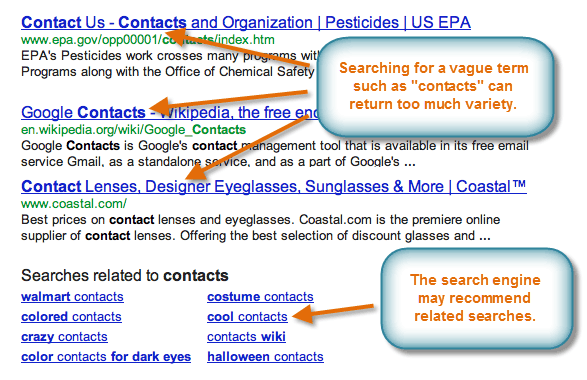Internet 101
Search Engines and Strategies
Assessing the search results
After you complete a search, glance over the first page of search results. Did it return what you are looking for, or is it just a lot of unnecessary "junk"?
If your search results don't seem very good, you may need to try different search terms. Remember, the search engine can't read your mind; it just looks for matching words. For example, if you just search for the word polish, the search engine doesn't know whether you're looking for shoe polish or a history of the Polish language!
You could improve your search results by searching for shoe polish. However, this still may return a variety of websites, including:
- Stores that sell shoe polish
- Guides on how to polish shoes
- The history of shoe polish
To get the best results, ask yourself, "What exactly am I looking for?" Specific terms usually return better results.
Related searches
A search engine will often recommend related searches that may be more specific than the search terms you used. Related searches are usually listed at the bottom of the page. Bing also lists them to the left of the search results.
 Using related searches to narrow down a search
Using related searches to narrow down a searchAdvertisements
Search engines may include advertisements along with the search results. These ads are chosen by the search engine based on your search terms, and they look a lot like the actual search results. While they may be useful in some cases, it's usually more effective to focus on regular search results.
Google puts its ads at the top and to the right of search results.






